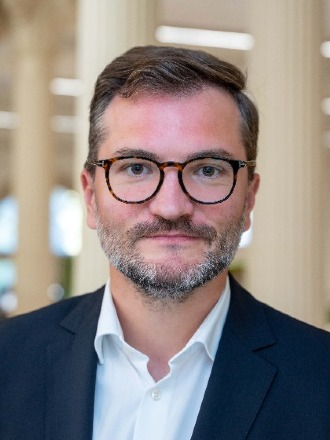DECIDE bridges the gap between citizens and AI

Artificial intelligence is now present everywhere. But how can we design AI in a way that creates value for everyone? Recently, the project DECIDE, which focuses on fair, transparent, and democratic AI, received a grant of €6.8 million from the NWA ORC program of the Dutch Research Agenda. University of Groningen (Campus Fryslân) researcher Oskar Gstrein – also theme coordinator of the Jantina Tammes School – leads the working package on AI Governance and Regulation of the project, and shares his insights about DECIDE.
More and more decisions in healthcare, mobility, public services, and local government are being made with the help of AI systems. For example, doctors in the medical sector use AI to create treatment plans, and governments employ AI to make administrative processes more efficient. Citizens are confronted with these decisions but have little to no influence over them, Gstrein explains. 'AI is becoming increasingly important, but how do we ensure that all citizens can keep up? That is our central question.'
DECIDE project
The DECIDE project (short for Democratizing AI, Empowering Citizens through Transparent Decision Making) is a consortium of scientists from various disciplines and societal partners. It focuses on a new generation of AI systems that operate more transparently and democratically, giving citizens more influence over decisions that affect their lives. 'With our project, we want to build a bridge,' Gstrein says. 'It is crucial that we do not simply impose new technologies like AI onto society. Do citizens really feel that current AI systems create value for them, or should its design take another direction?'
Together with Lukas Linsi (Faculty of Arts), as well as Maryam Amir Haeri and Koray Karaca from the University of Twente, Gstrein is focusing on Governance and Regulation, which is one of the work packages of the DECIDE project. 'We want to look not only at the technical possibilities and regulatory frameworks around AI, but also at citizens’ perceptions.' He explains that technology does not always align with societal needs or values. 'An important source of inspiration is the Covid pandemic. During the pandemic, many new technologies such as digital vaccine passports and tracing apps were used, but citizens are rarely involved in their development. As a result, many people did not trust these systems, which in turn further increased polarization.'
Democratic
When designing new AI systems, the focus should be on explainable and reliable decisions, Gstrein emphasizes. 'Current artificial intelligence focuses on outcomes: if something works, that is considered good enough. Why it works is often not examined further. With this project, we want to take a step forward, because the danger is that it may work for the majority, but exclude minorities. We want everyone to be able to participate; it must be democratic,' he concludes.
The DECIDE consortium consists of nearly fifty partners from academia, policy, technology, and practice, highlighting the interdisciplinary and transdisciplinary character of the program (full list available on the NWO-ORC announcement page, ed.). The project is led by Mieke Boon, Professor of Philosophy of Science at the University of Twente. The Jantina Tammes School of Digital Society, Technology & AI at the University of Groningen is also actively involved. Collaboration between different disciplines and societal organizations is a natural fit for the School, Gstrein says. 'Also, it is all about major societal challenges. To solve them, we need to join forces.'
The grant was awarded within the program Research along Routes by Consortia (NWA-ORC) of the Dutch National Research Agenda. This program supports long-term, interdisciplinary research projects addressing urgent societal issues. The extensive DECIDE program will start in September and run until 2032.
More news
-
15 September 2025
Successful visit to the UG by Rector of Institut Teknologi Bandung

